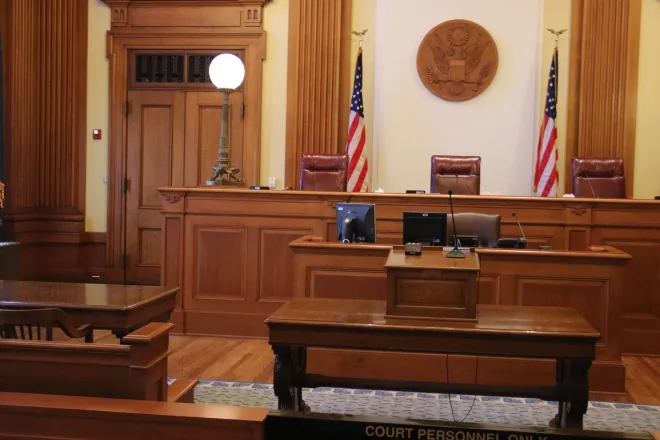
Muslim rights group sues Michigan sheriff over forced hijab removal
(Michigan News Connection) A Muslim rights group is taking the Kent County Sheriff's Office to court for forcing a Michigan woman to remove her hijab for a booking photo.
The Michigan chapter of the Council on American-Islamic Relations filed a claim this week alleging the sheriff's office violated the religious rights of Jannah Hague, 21, of Grand Rapids.
Amy Doukoure, staff attorney for the council, said the sheriff's office insisted on taking one of her two booking photos without her hijab, and posting it on a public website.
"We believe that Kent County's dual hijab policy or dual photograph policy is unnecessary," Doukoure asserted. "And that's sort of what we have worked through with the city of Detroit, the city of Ferndale, and the Michigan Department of Corrections, and the lawsuits that we settled last year."
The Kent County Sheriff's Office said Hague was detained April 8 following an altercation at her home but declined to make any further comment.
Dockoure pointed out Muslim women wear the hijab as part of a sincerely-held belief they must cover their hair, neck and ears in the presence of men who are not related to them. She added removing a hijab in front of non-related men is highly offensive to practicing Muslim women.
"Policies are set by the jail or the institution and not necessarily through state law," Dockoure explained. "I don't believe laws in any state protect women's right to wear the hijab explicitly."
She says it's also important for Muslims to fully understand their rights when dealing with American law enforcement officials.
"Even if you are detained or you're arrested by law enforcement, it does not -- first of all -- indicate you're a criminal because you're innocent till proven guilty in the United States," Dockoure said. "And it also doesn't mean that you have to be stripped of all your religious rights or even all your constitutional rights."

















